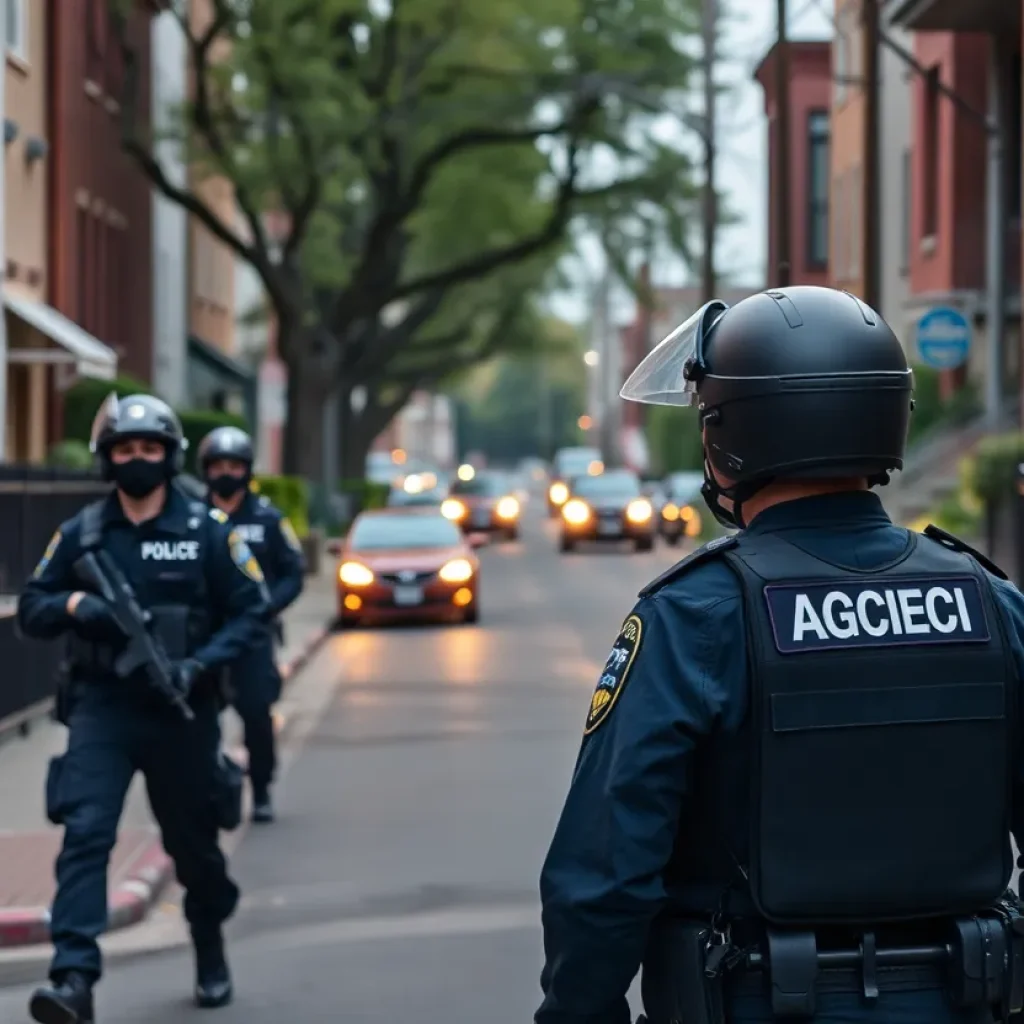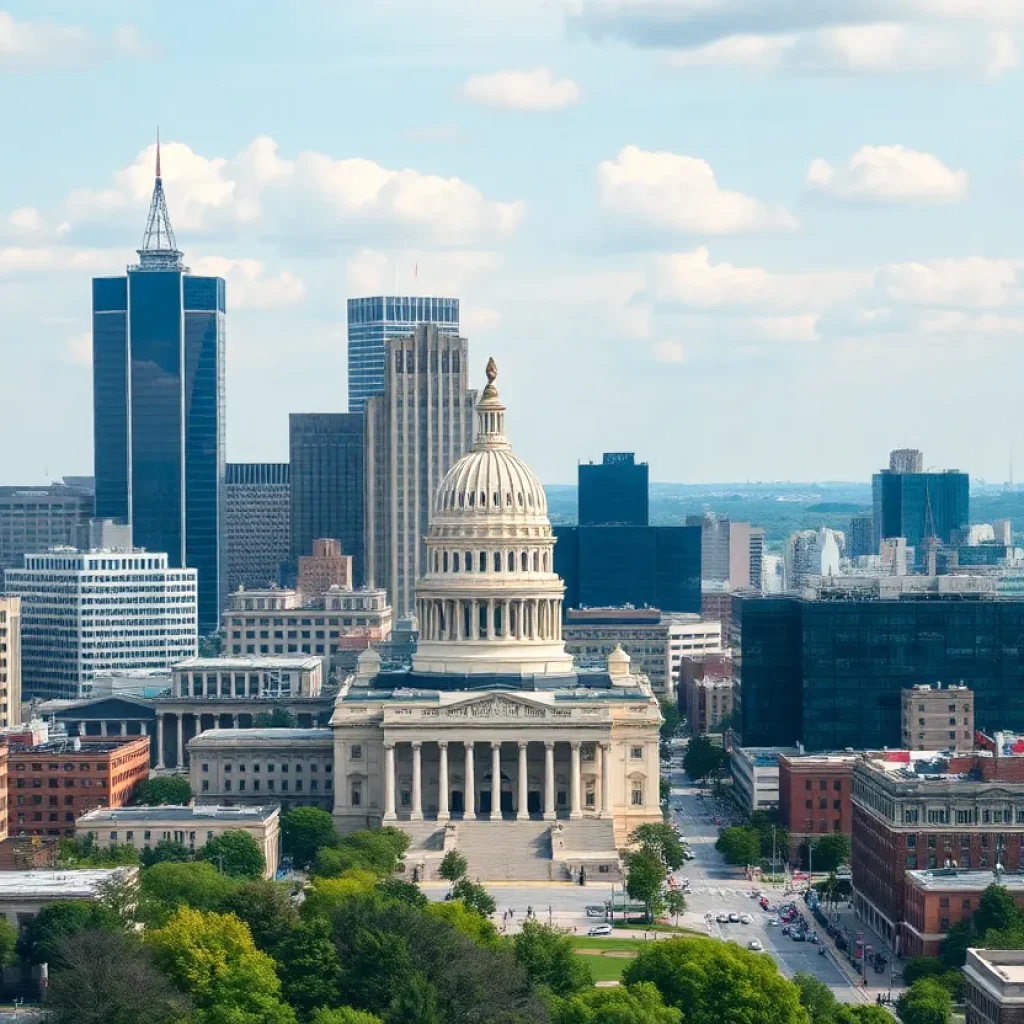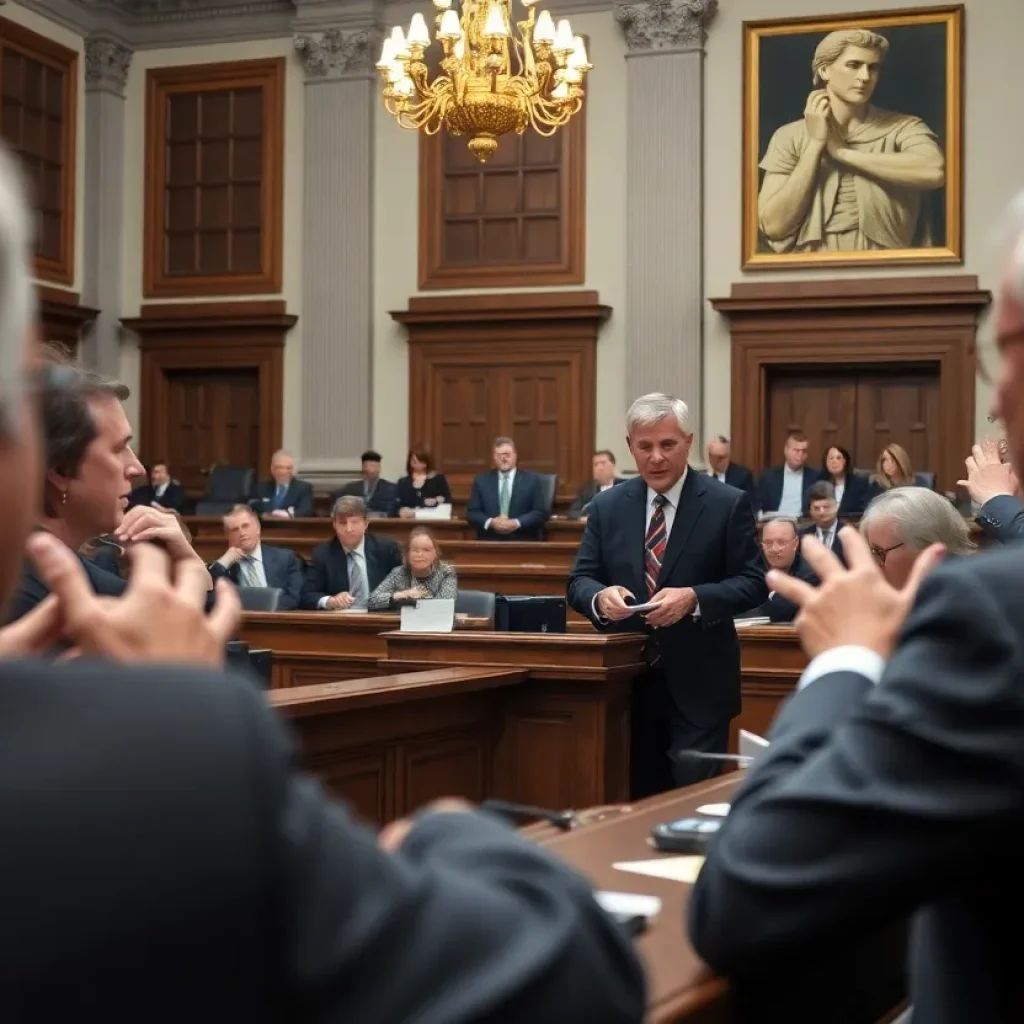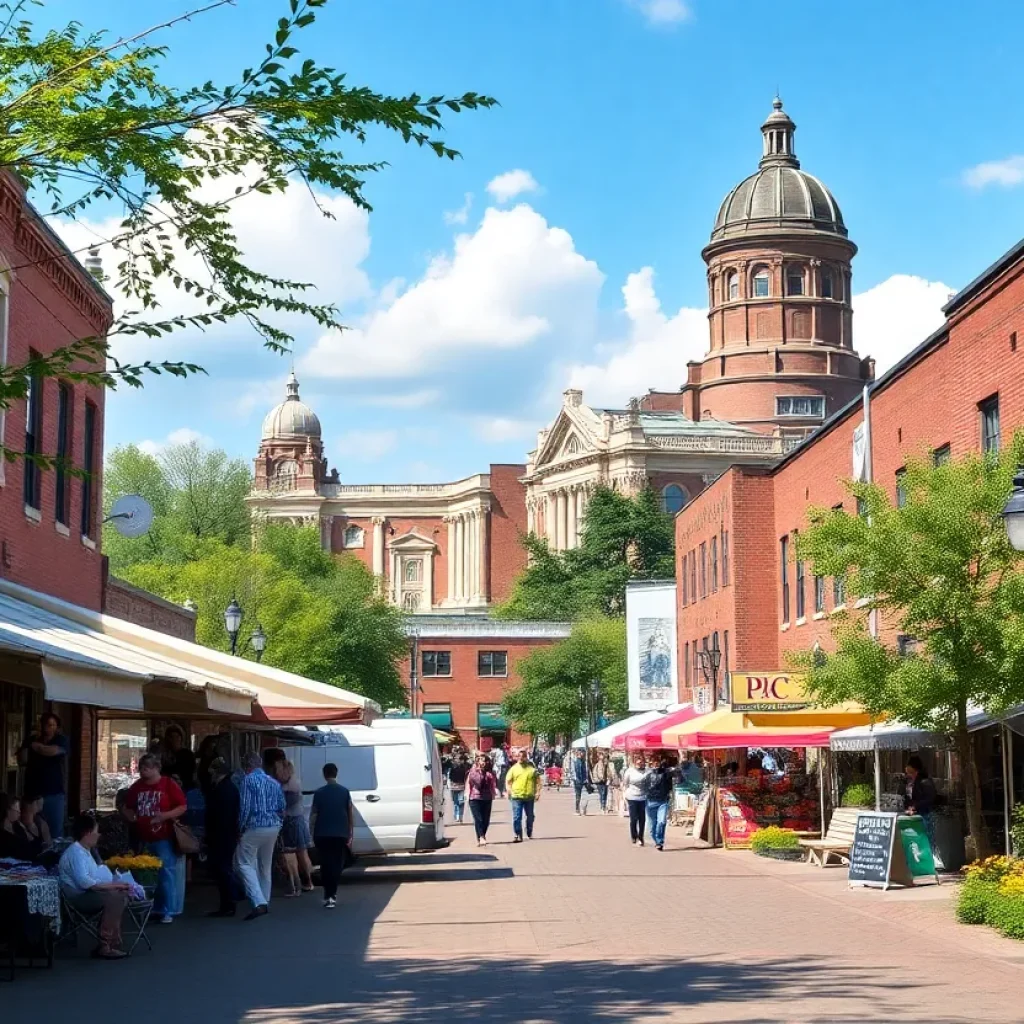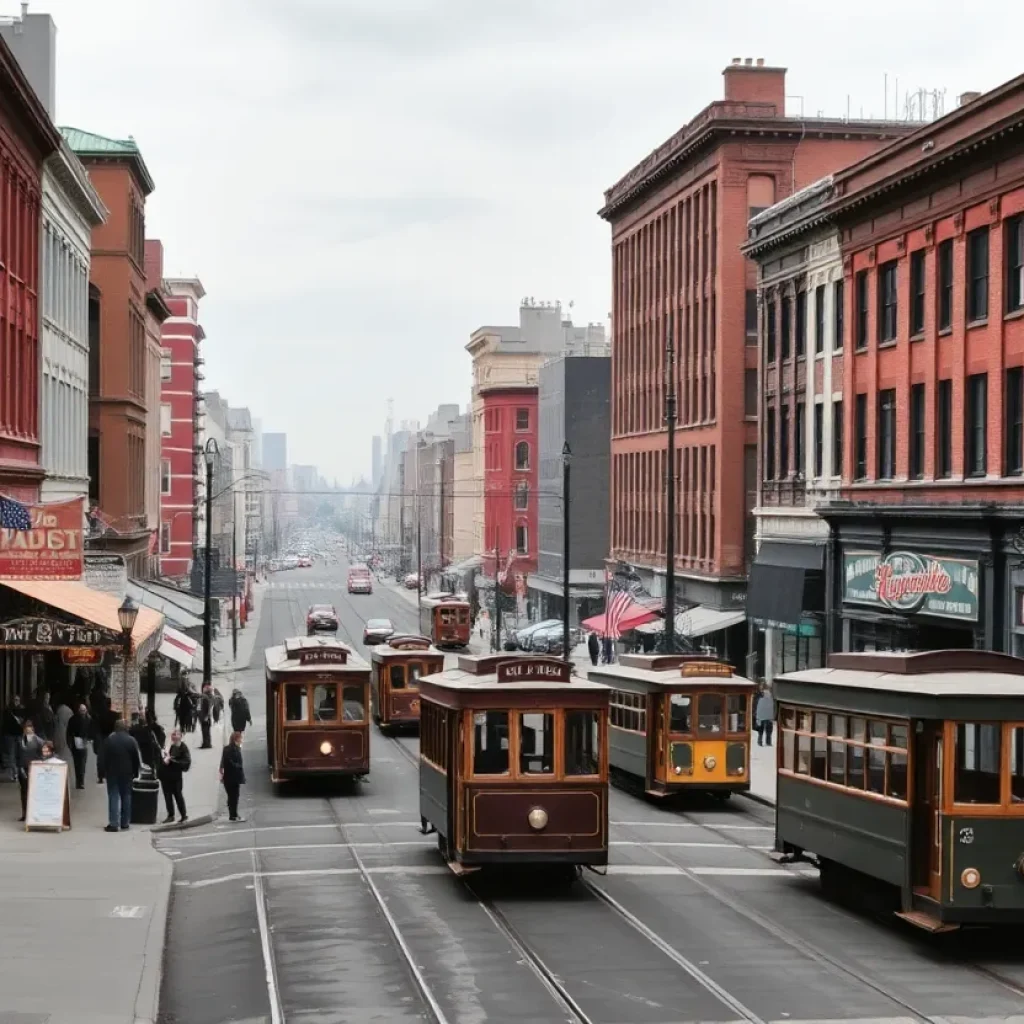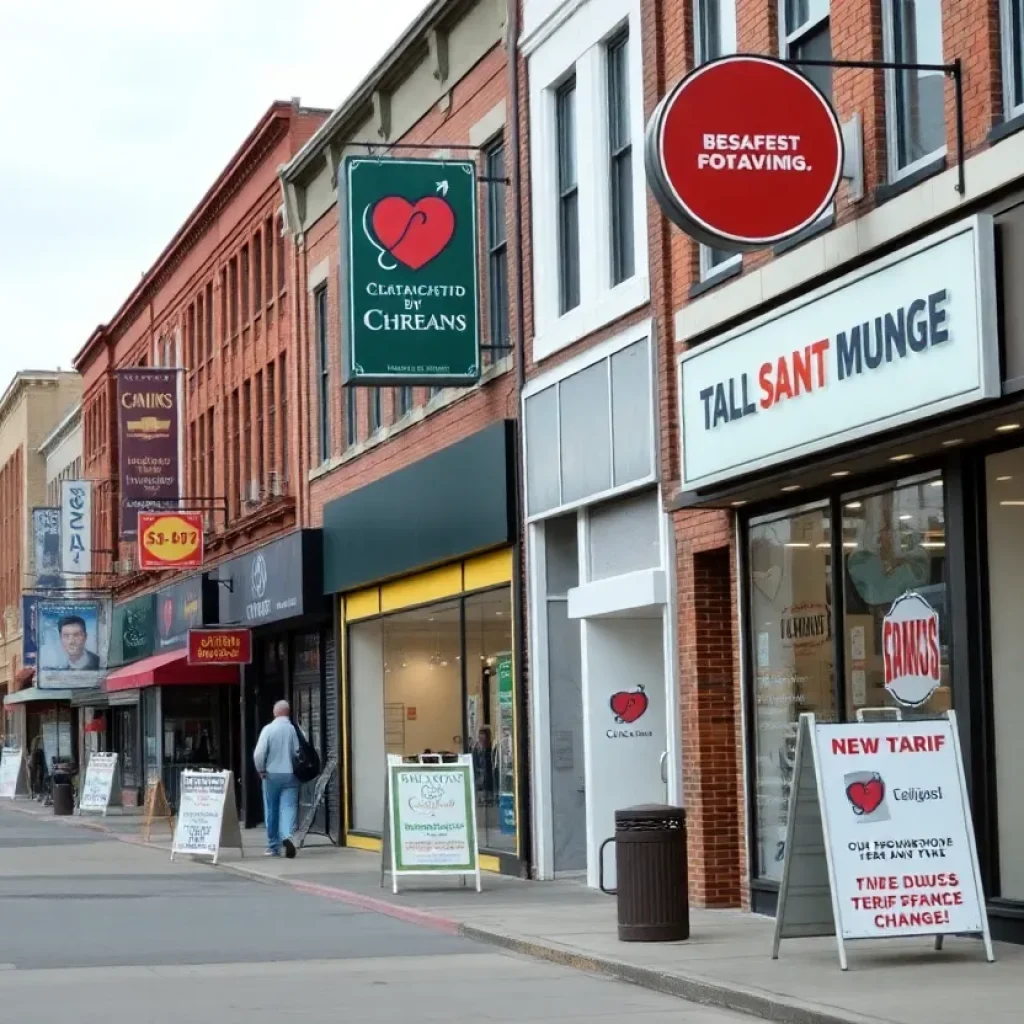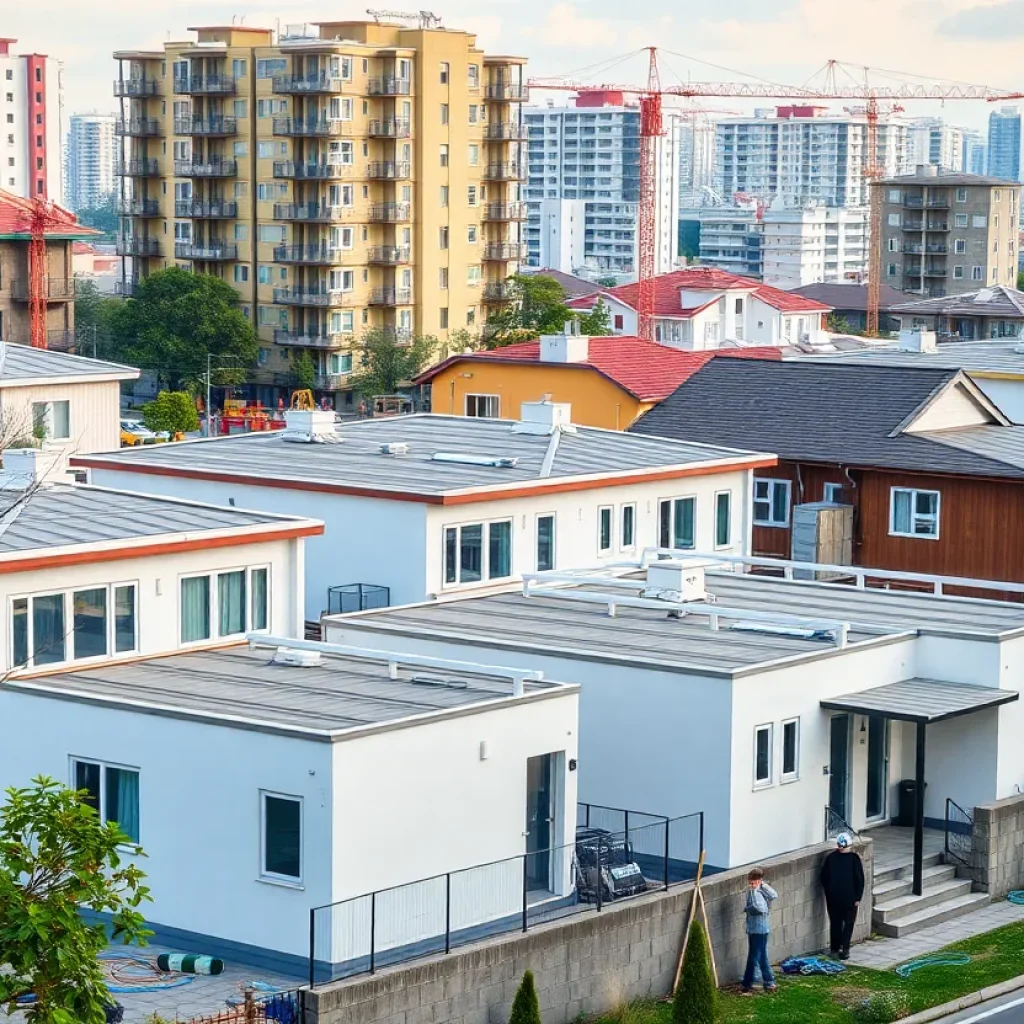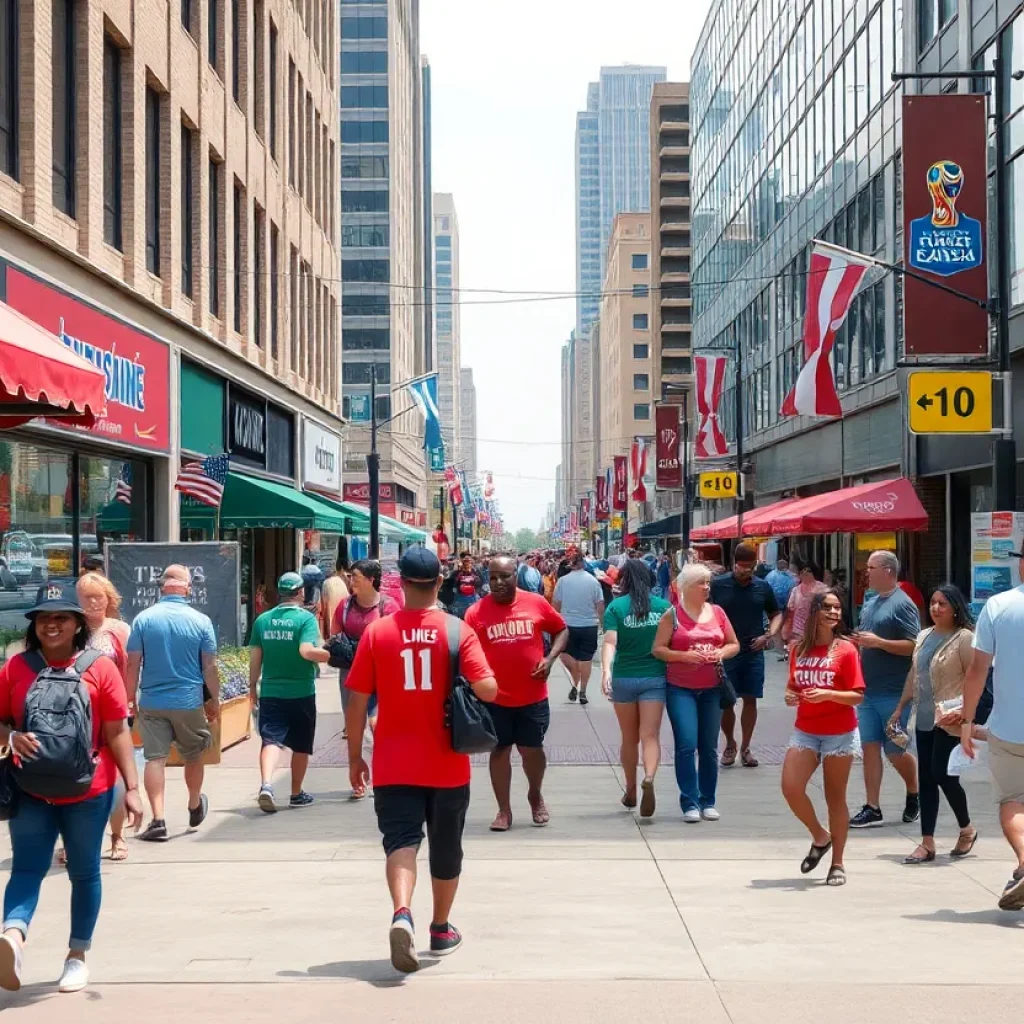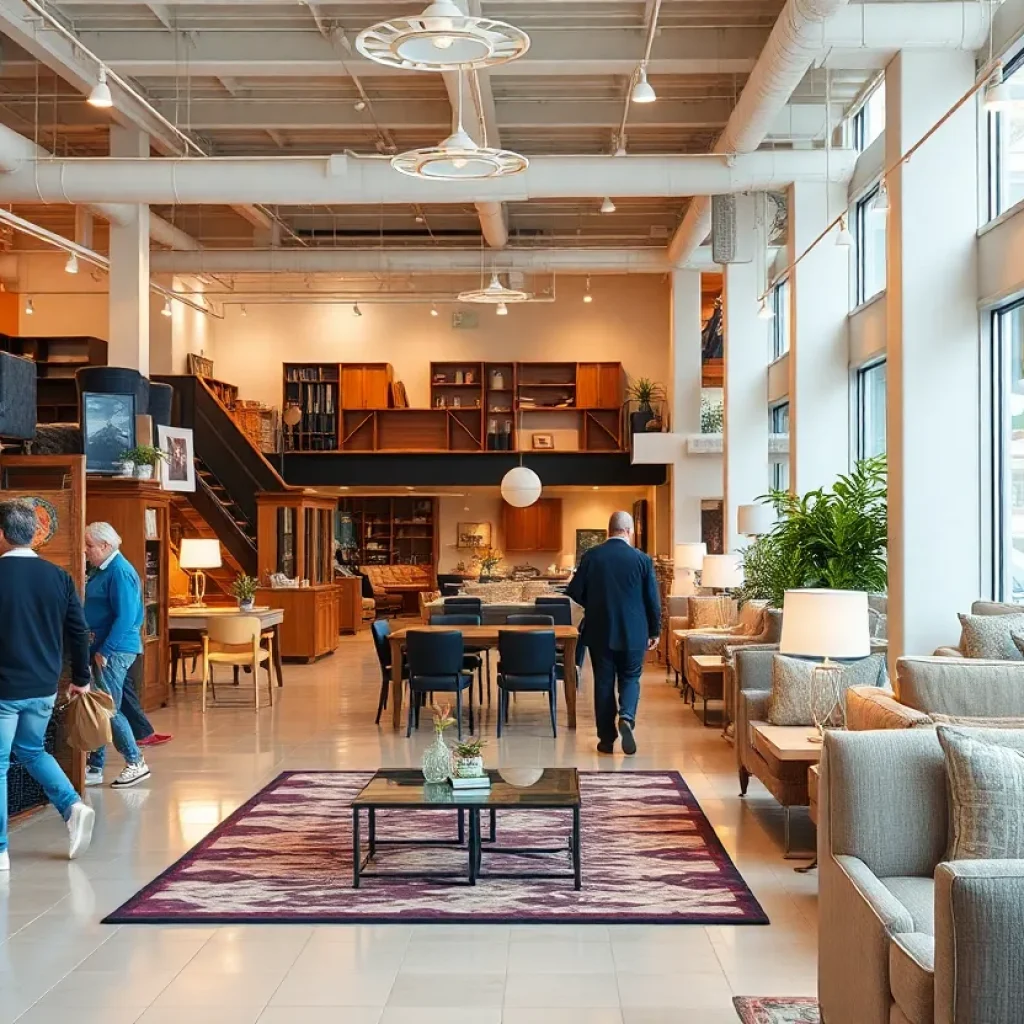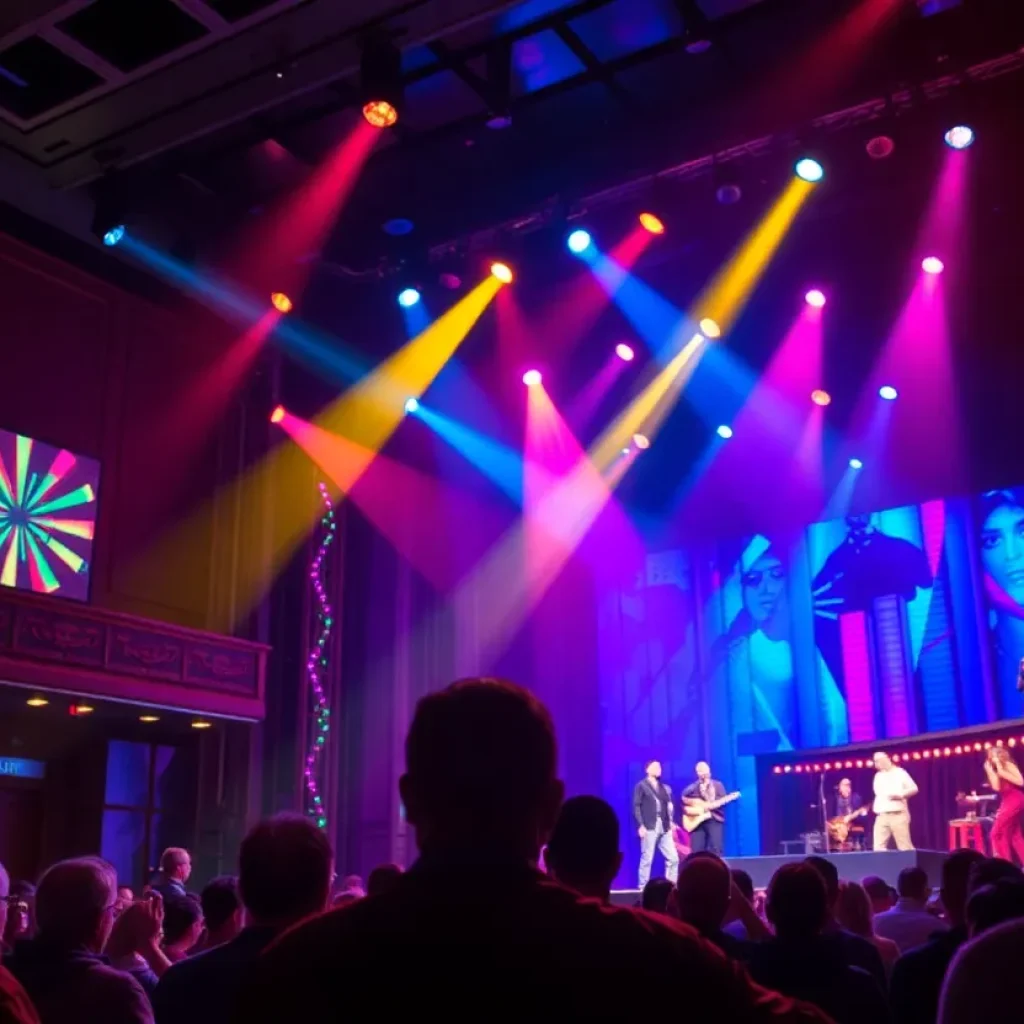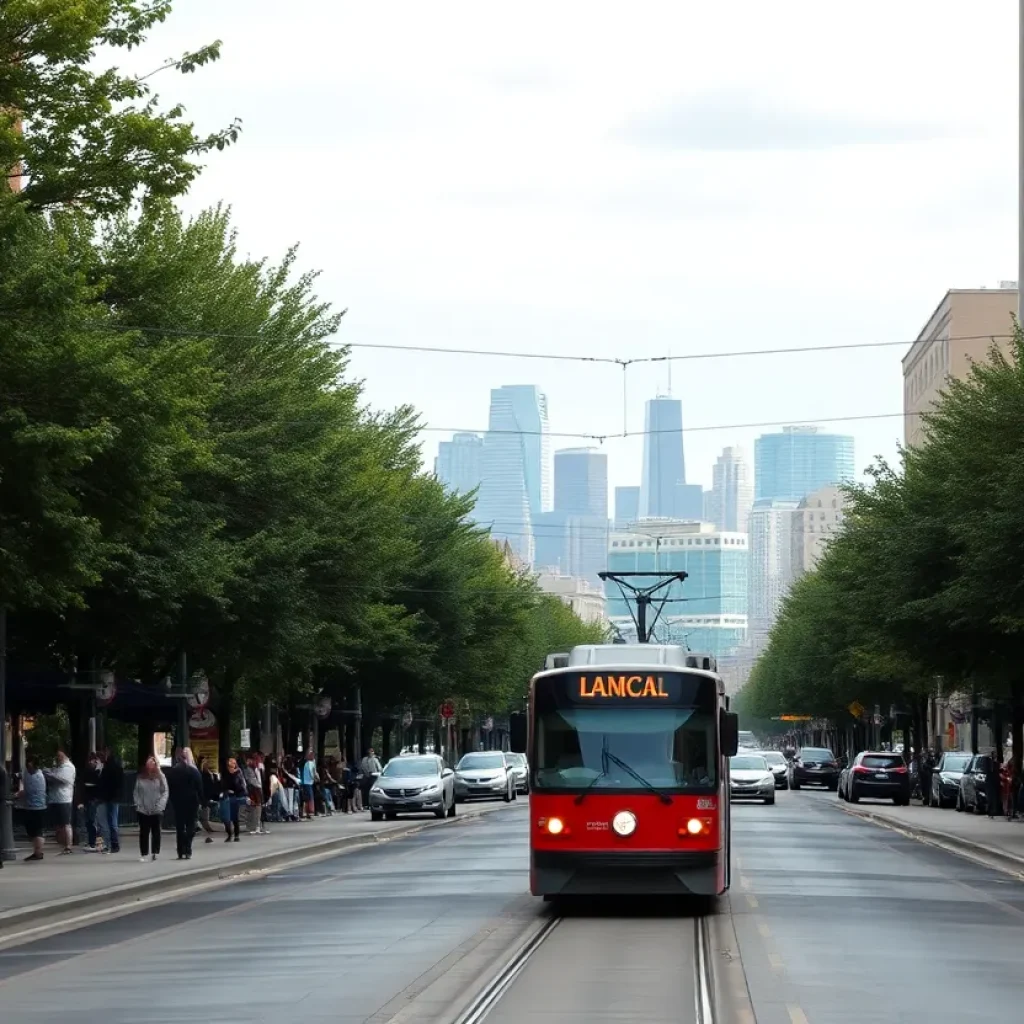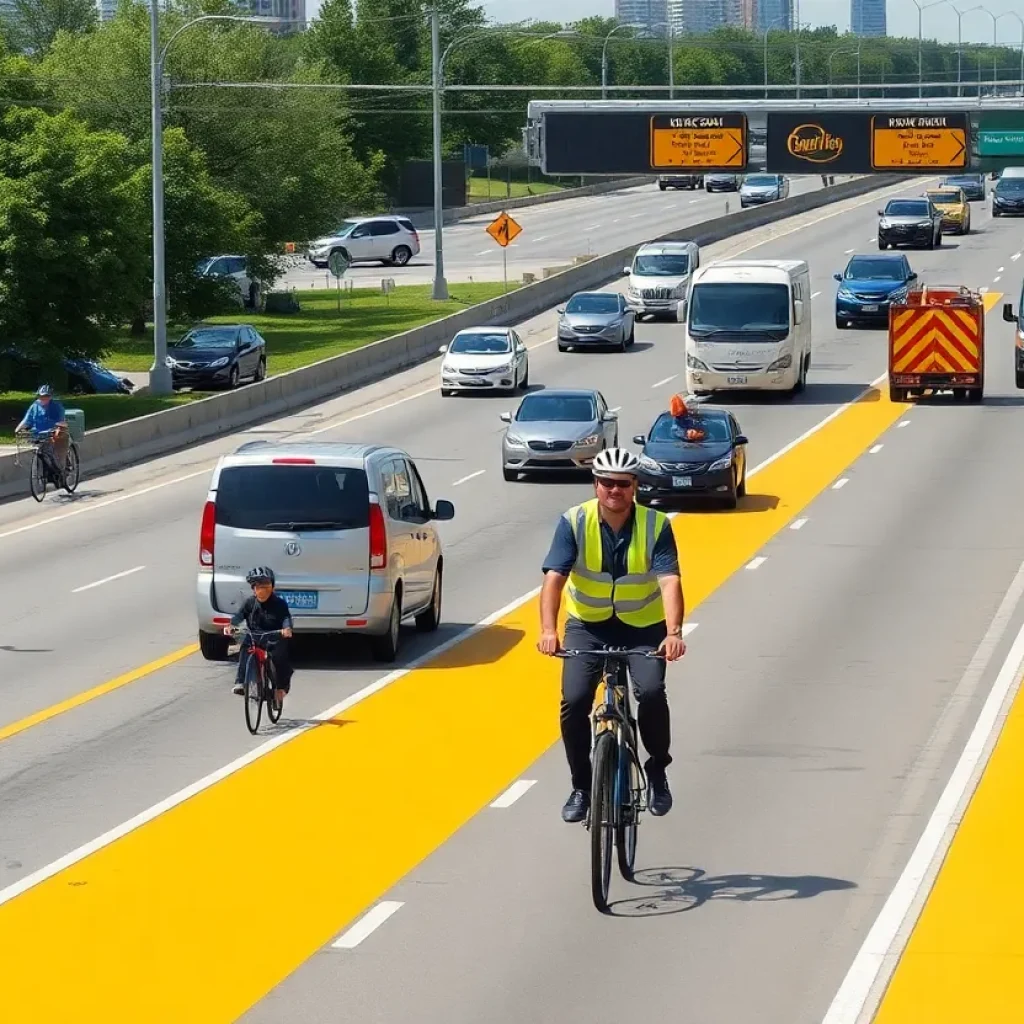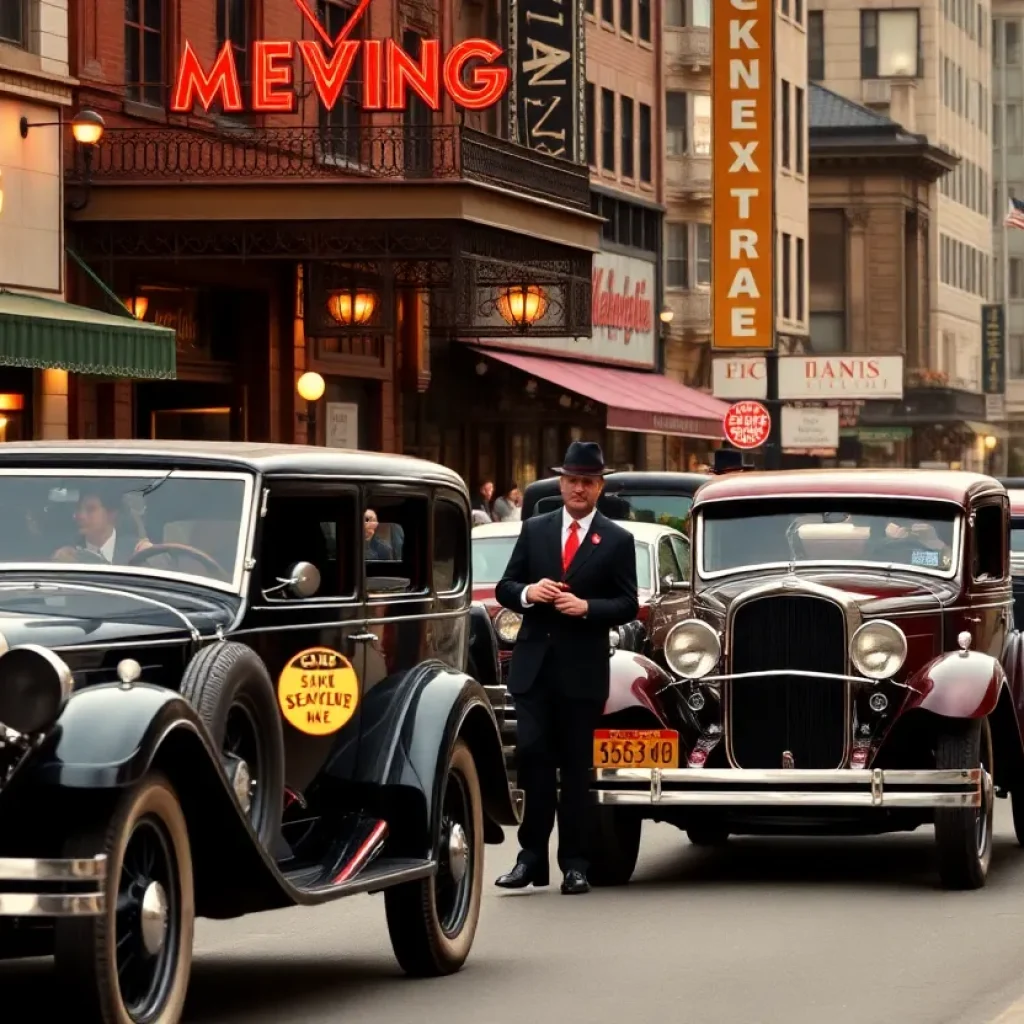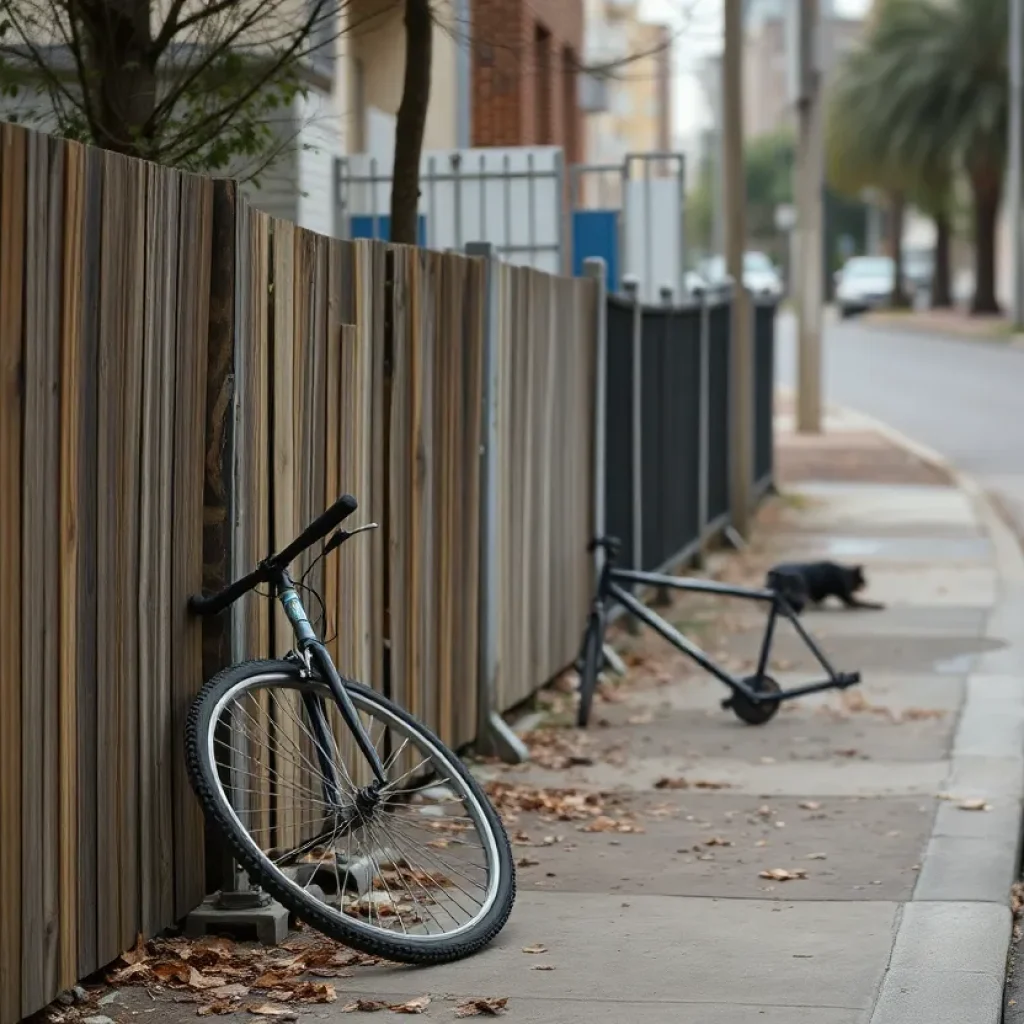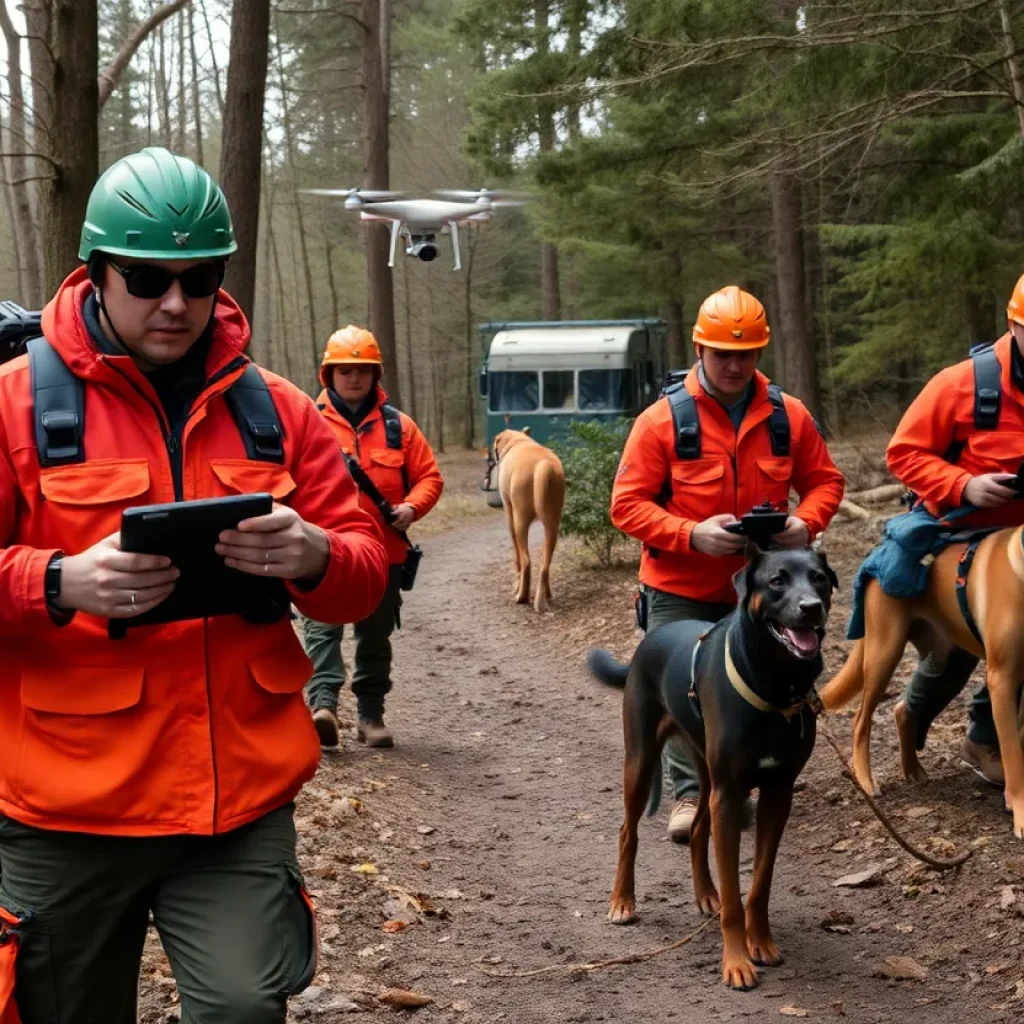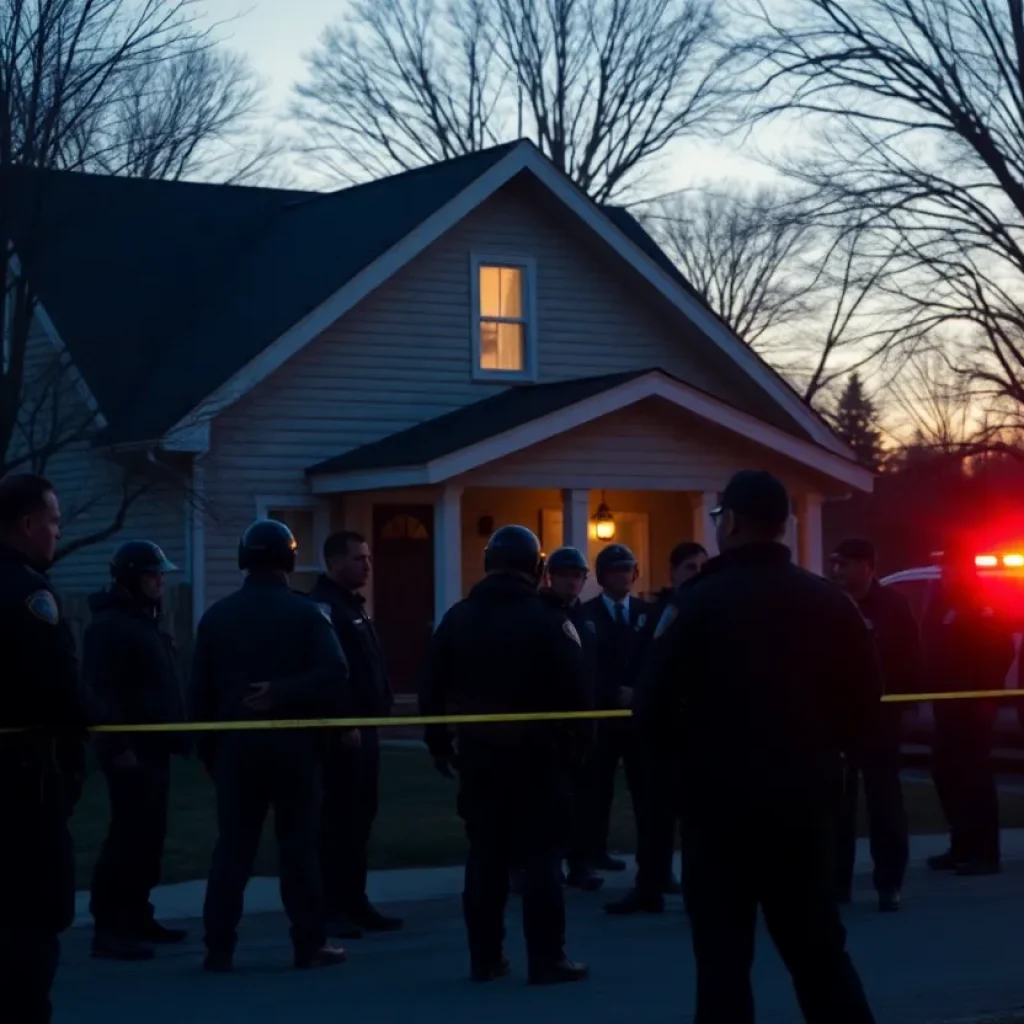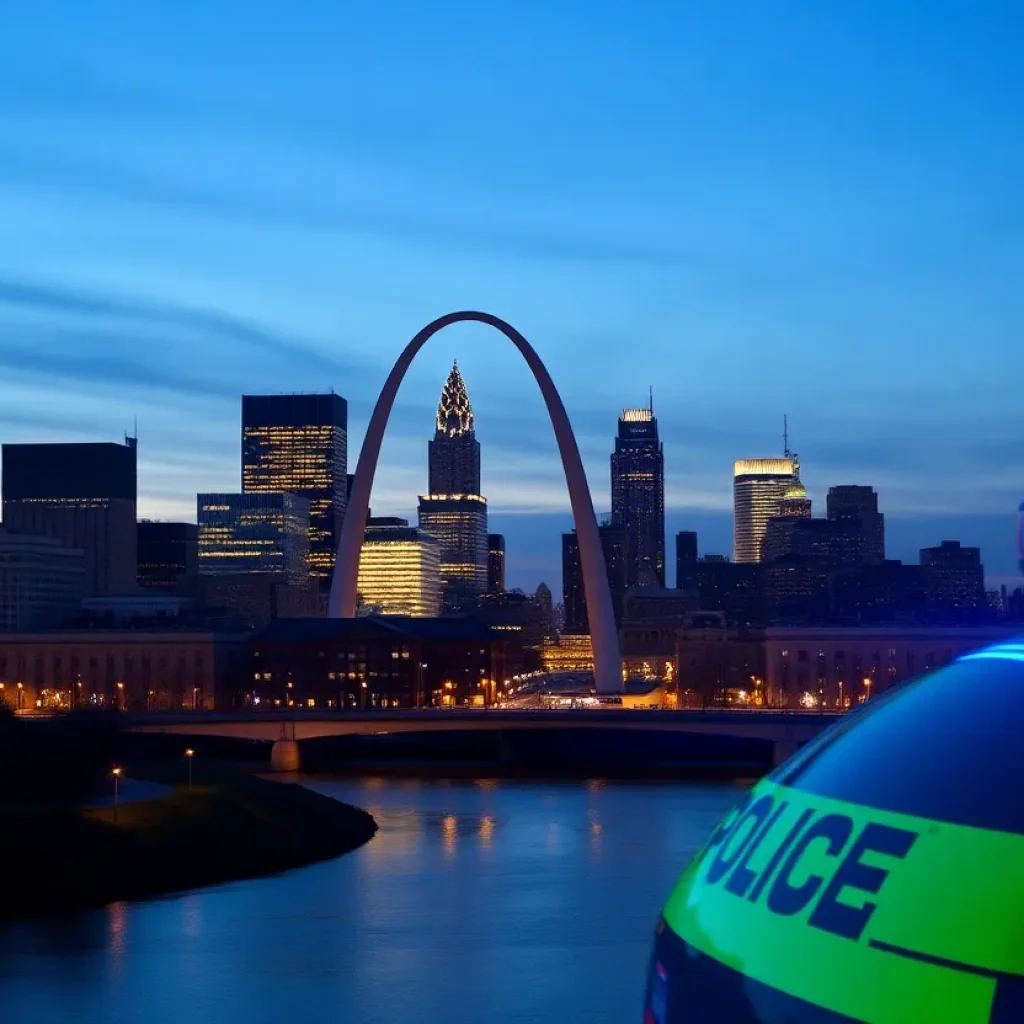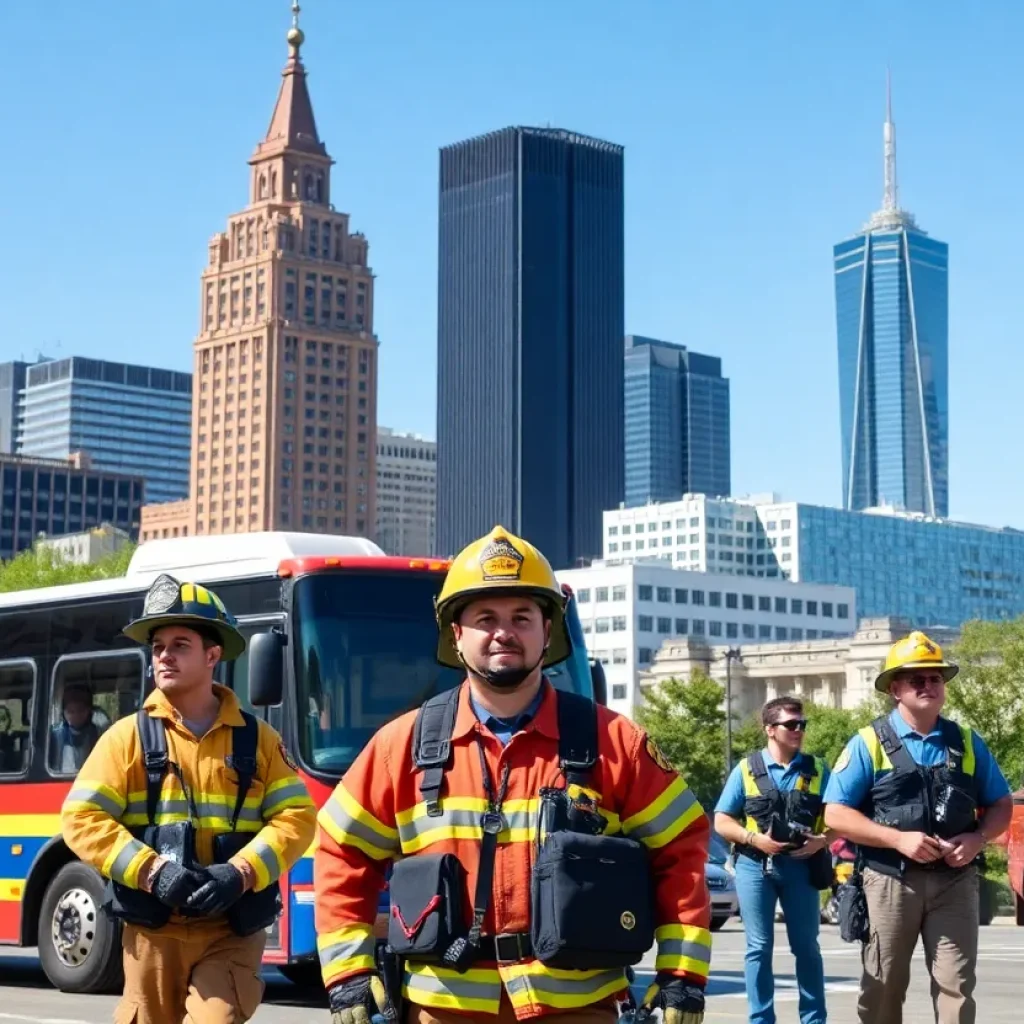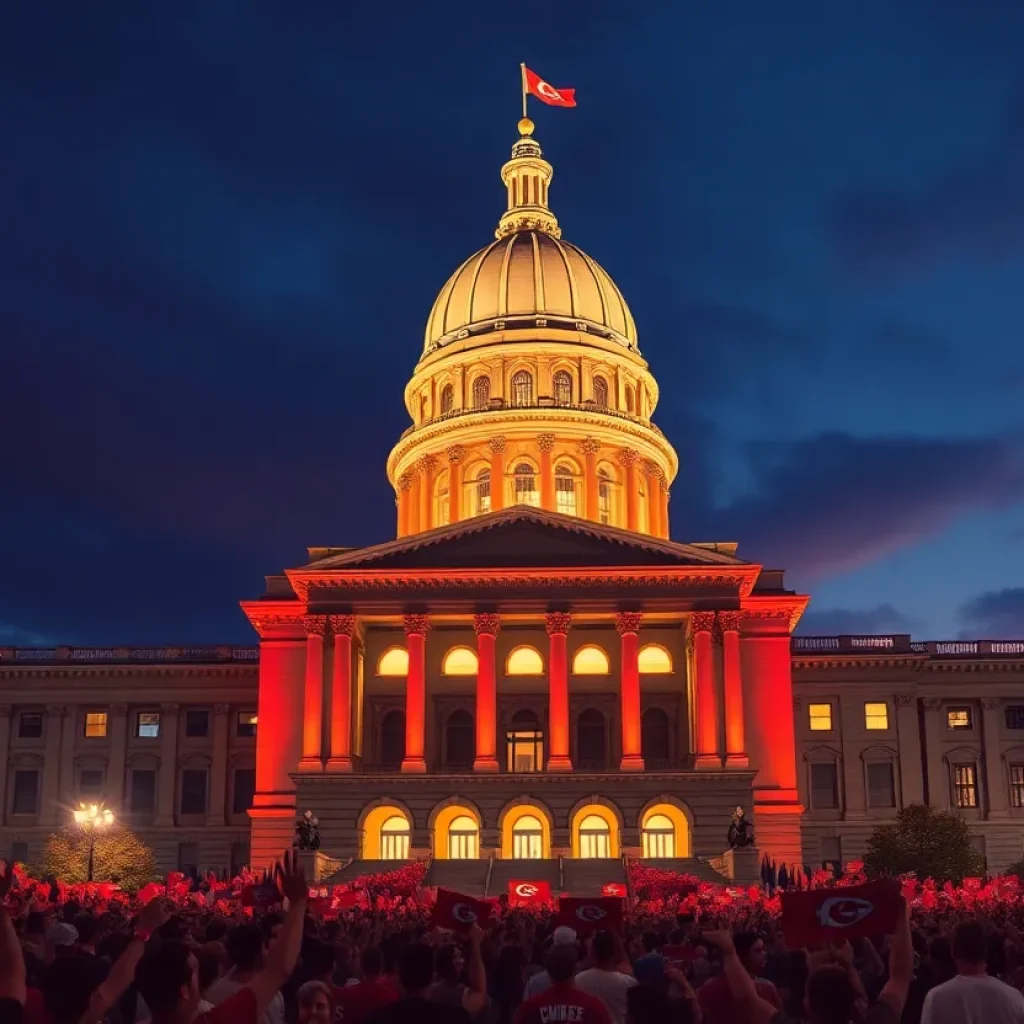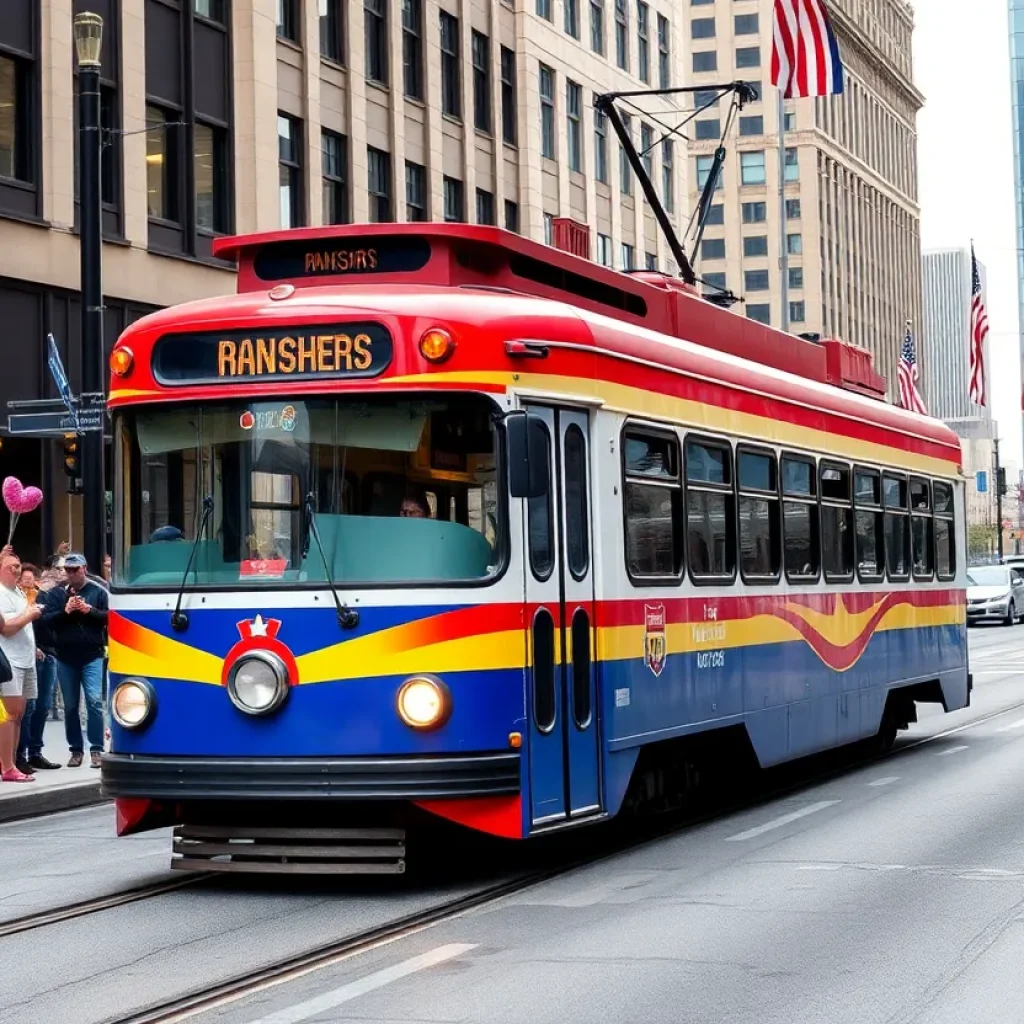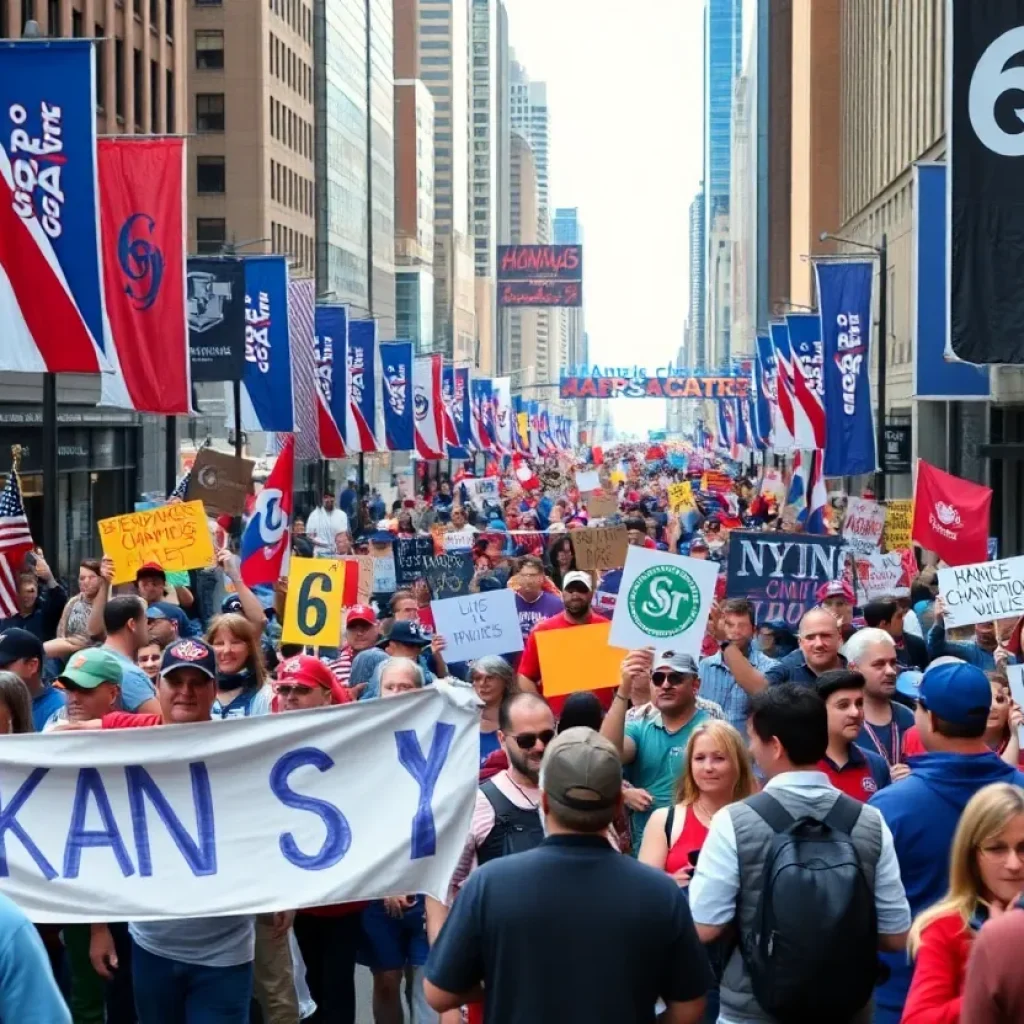Kansas City News
TOP kansas city STORIES
BREAKING NEWS
Kansas City Man Tragically Loses Life in Motorcycle Crash
News Summary A heartbreaking motorcycle crash claimed the life of a 51-year-old man in Kansas City. The accident, occurring on Route C in Benton County, highlights the importance of safety...
Kansas City Implements New Ordinance to Boost Police Presence
News Summary In response to a surge in property crimes, Kansas City has enacted a new ordinance allowing the city manager to hire off-duty police officers for neighborhood patrols. This...
Olathe Community Reacts to Recent Missing Persons Cases
News Summary The Olathe community is on high alert as missing persons cases unfold. While Rachel B. Gross has been found safe after going missing, the search continues for Jordan...
Kansas City Faces Uncertainty Amid Federal Workforce Firings
News Summary Kansas City is in turmoil following recent mass firings within the federal workforce, including Navy veteran Cynthia Clark. The city is witnessing a wave of terminations across various...
Tragic Death of Kansas City Sports Reporter Raises Questions
News Summary The death of Kansas City sports reporter Adan Manzano during Super Bowl LIX in New Orleans has led to a disturbing investigation. With links to a woman charged...
Tensions Rise in Missouri Over Federal Workforce Cuts
News Summary In Columbia, Missouri, political tensions escalate as State Rep. David Tyson Smith accuses U.S. Rep. Mark Alford of intimidation regarding VA workforce cuts. Calls from frustrated constituents highlight...
BUSINESS
Columbia Pushes for SBA Office Relocation Amid Controversy
News Summary U.S. Representative Mark Alford advocates for relocating the Small Business Administration’s regional office from Kansas City to Columbia. He argues this move would enhance support for local businesses...
Kansas City: A Historical Journey Through E. 12th Street
News Summary Discover the rich history of E. 12th Street in Kansas City, tracing its evolution from a bustling hub of shops and community spirit in 1909 to modern transformations....
Kansas City Welcomes The Yard Milkshake Bar: A Sweet Addition
News Summary Kansas City is excited to announce the opening of The Yard Milkshake Bar in the Power & Light District, set to open on March 14. Known for its...
Wichita Welcomes The Big Biscuit Breakfast Chain
News Summary Wichita is set to open a new location of The Big Biscuit, a popular breakfast chain from Independence, Missouri. The new restaurant will provide local biscuit lovers with...
Kansas City Seniors Scandalized by Faked Death in Support Group
News Summary A woman in Kansas City deceived members of an online support group by faking her death from cancer, leading to an emotional fallout within the senior community. After...
Kansas City Braces for Impact as Aluminum and Steel Tariffs Roll Out
News Summary Kansas City businesses are preparing for the implementation of new aluminum and steel tariffs, set to take effect this Wednesday. The tariffs, confirmed by Commerce Secretary Howard Lutnick,...
Kansas City Innovates Affordable Housing Solutions
News Summary Daniel Edwards, a local entrepreneur, is revolutionizing the housing market in Kansas City by focusing on affordable housing. With a background in architectural engineering and a commitment to...
Kansas City Prepares for Economic Growth Ahead of 2026 FIFA World Cup
News Summary Kansas City is gearing up to be a key player in the FIFA World Cup 2026, with leaders emphasizing the need for coordinated economic development. The event could...
Furniture Mall of Missouri to Open Third Location in Northland
News Summary The Furniture Mall of Missouri is set to open its third location in Kansas City’s Northland, taking over the soon-to-close Macy’s store. Renovations will begin on April 1st...
Events/What's Happening
Kansas City Gears Up for Total Lunar Eclipse
News Summary Kansas City is preparing for its first total lunar eclipse in three years on March 14. Residents can expect a breathtaking spectacle as the moon transforms into a...
Kansas City Prepares for ‘Dog Man: The Musical’
News Summary Kansas City is buzzing with excitement as tickets for ‘Dog Man: The Musical’ will be available starting March 17, 2025. Based on the popular book series by Dav...
Kansas City Voters Face Crucial Decision on School Bond
News Summary On April 8, Kansas City voters will decide on a significant school bond proposal worth $474 million aimed at enhancing educational facilities. The bond primarily focuses on Kansas...
Kansas City Prepares for a Stellar Broadway Season
News Summary Kansas City’s PNC Broadway series has announced its thrilling lineup for the 2025-2026 season, featuring popular shows like ‘Wicked,’ ‘Hamilton,’ and ‘The Book of Mormon.’ Theater enthusiasts can...
Kansas City Prepares for Streetcar Expansion
News Summary Kansas City is gearing up for an expansion of its streetcar service by March 8, 2025, enhancing public transportation just in time for major sports events. With four...
Kansas City Takes Major Steps Toward a Safer 71 Highway!
News Summary Kansas City is moving ahead with a $5 million federally funded project to improve safety and connectivity along the 71 Highway. The initiative addresses the highway’s dangerous intersections...
Kansas City Unveils The Science of Guinness World Records Exhibition
News Summary The Science of Guinness World Records exhibition has opened at Union Station in Kansas City, running from March 8 to September 2. This immersive experience features around 70...
Explore Kansas City’s Gangster History on Special Tour
News Summary The Kansas City Gangster Tour, celebrating its 20th anniversary in 2025, offers an engaging experience into the city’s gritty past. Visitors can expect a 90-minute adventure exploring notorious...
Kansas City Area Braces for Breezy Conditions and Temperature Fluctuations
News Summary Kansas City residents can expect a breezy Friday with gusty winds and temperatures peaking around 60 degrees, a welcome change from average February weather. As a cold front...
CRIME
Kansas City Man Tragically Loses Life in Motorcycle Crash
News Summary A heartbreaking motorcycle crash claimed the life of a 51-year-old man in Kansas City. The accident, occurring on Route C in Benton County, highlights the importance of safety...
Olathe Community Reacts to Recent Missing Persons Cases
News Summary The Olathe community is on high alert as missing persons cases unfold. While Rachel B. Gross has been found safe after going missing, the search continues for Jordan...
Tragic Death of Kansas City Sports Reporter Raises Questions
News Summary The death of Kansas City sports reporter Adan Manzano during Super Bowl LIX in New Orleans has led to a disturbing investigation. With links to a woman charged...
Kansas City Woman Takes Legal Action After Dog Attack
News Summary A Kansas City woman, Holly Lane, is suing the Kansas City Pet Project following a tragic dog attack that led to the death of cyclist Chris Culbertson. The...
Urgent Search Continues for Missing Man in Miami County
News Summary The search for Jordan Yust, missing since March 3, intensifies as Miami County authorities deploy K-9 units, drones, and community efforts to find him. Yust, last seen driving...
Kansas City Police Standoff Over Illegal Drugs
News Summary In a tense standoff in Kansas City, Kansas, two men resisted police efforts to serve a warrant for over six hours. Ultimately, both suspects were taken into custody...
POLITICS
Kansas City Implements New Ordinance to Boost Police Presence
News Summary In response to a surge in property crimes, Kansas City has enacted a new ordinance allowing the city manager to hire off-duty police officers for neighborhood patrols. This...
Kansas City Faces Uncertainty Amid Federal Workforce Firings
News Summary Kansas City is in turmoil following recent mass firings within the federal workforce, including Navy veteran Cynthia Clark. The city is witnessing a wave of terminations across various...
Tragic Death of Kansas City Sports Reporter Raises Questions
News Summary The death of Kansas City sports reporter Adan Manzano during Super Bowl LIX in New Orleans has led to a disturbing investigation. With links to a woman charged...
Tensions Rise in Missouri Over Federal Workforce Cuts
News Summary In Columbia, Missouri, political tensions escalate as State Rep. David Tyson Smith accuses U.S. Rep. Mark Alford of intimidation regarding VA workforce cuts. Calls from frustrated constituents highlight...
Missouri Legislature Votes to Control St. Louis Police
News Summary Missouri lawmakers voted 27 to 5 in favor of a bill to place the St. Louis Metropolitan Police Department under state control. Supporters, including some Kansas City Democrats,...
Kansas City to Enhance Maternal Health with $17 Million Grant
News Summary Kansas City has been awarded a $17 million grant to improve maternal health and address healthcare disparities. This funding will enhance cardio-obstetric practices and tackle significant issues such...
Kansas City’s Employee Salary Breakdown for 2024
News Summary Kansas City has disclosed its employee salary data for 2024, revealing notable compensation figures among city workers. The Fire Department dominates, with many of the highest-paid employees being...
America’s Political Chaos: Opportunities for Europe
News Summary As America faces significant political turmoil under the current administration, Europe is viewing this turmoil as a chance to strengthen its own global position. From military commitments to...
Community Voices Share Concerns Over National Policies
News Summary In Kansas City, residents express their concerns regarding national political policies and their impact on local and global dynamics. A series of letters to the editor reveal worries...
SPORTS
Kansas City Prepares for Streetcar Expansion
News Summary Kansas City is gearing up for an expansion of its streetcar service by March 8, 2025, enhancing public transportation just in time for major sports events. With four...
Missouri Celebrates Team Spirit Ahead of Super Bowl LIX
News Summary The state of Missouri is bursting with pride as the Kansas City Chiefs prepare for their third consecutive Super Bowl appearance against the Philadelphia Eagles. The iconic Missouri...
Kansas City Streetcar Returns for Super Bowl LVIII
News Summary Kansas City celebrates the return of the streetcar just in time for Super Bowl LVIII. After a brief closure for track construction, service resumed on February 7, 2025,...
Kansas City Prepares for Super Bowl LIX: TV Schedule Changes
News Summary Kansas City is buzzing as fans gear up for Super Bowl LIX, where the Chiefs will face the Eagles. Viewers should note schedule changes, including a late-night airing...
Kansas City Prepares for Chiefs Parade Amid Economic Concerns
News Summary As Kansas City gears up for a potential Chiefs parade celebrating a third consecutive Super Bowl title, the city also grapples with economic challenges stemming from ongoing trade...
Kansas City Prepares for 2026 FIFA World Cup
News Summary Kansas City is gearing up for the 2026 FIFA World Cup with an investment proposal of $40.5 million from Governor Mike Kehoe, aiming to enhance security, transportation, and...
Philadelphia Sparks Debate Over NL MVP Honors Amid Castellanos’ Support for Iglesias
Philadelphia Sparks Debate Over NL MVP Honors In the bustling atmosphere of Philadelphia, the baseball chatter has been buzzing around a bold statement made by Nick Castellanos, outfielder for the...
Sacramento Kings Ignite Fan Excitement with Thrilling Win Streak
Sacramento Kings Fans Getting Fired Up Over Recent Win Streak Hey there, basketball enthusiasts! If you’ve been keeping an eye on the Sacramento Kings, you might have noticed something pretty...
Philadelphia Eagles Secure Wild Card Victory Amid Controversial Saquon Barkley Decision
Philadelphia Eagles vs. New York Giants: A Wild Card Game to Remember This past Sunday in Philadelphia, the excitement surrounding the NFL Wild Card game was palpable. Fans packed the...






